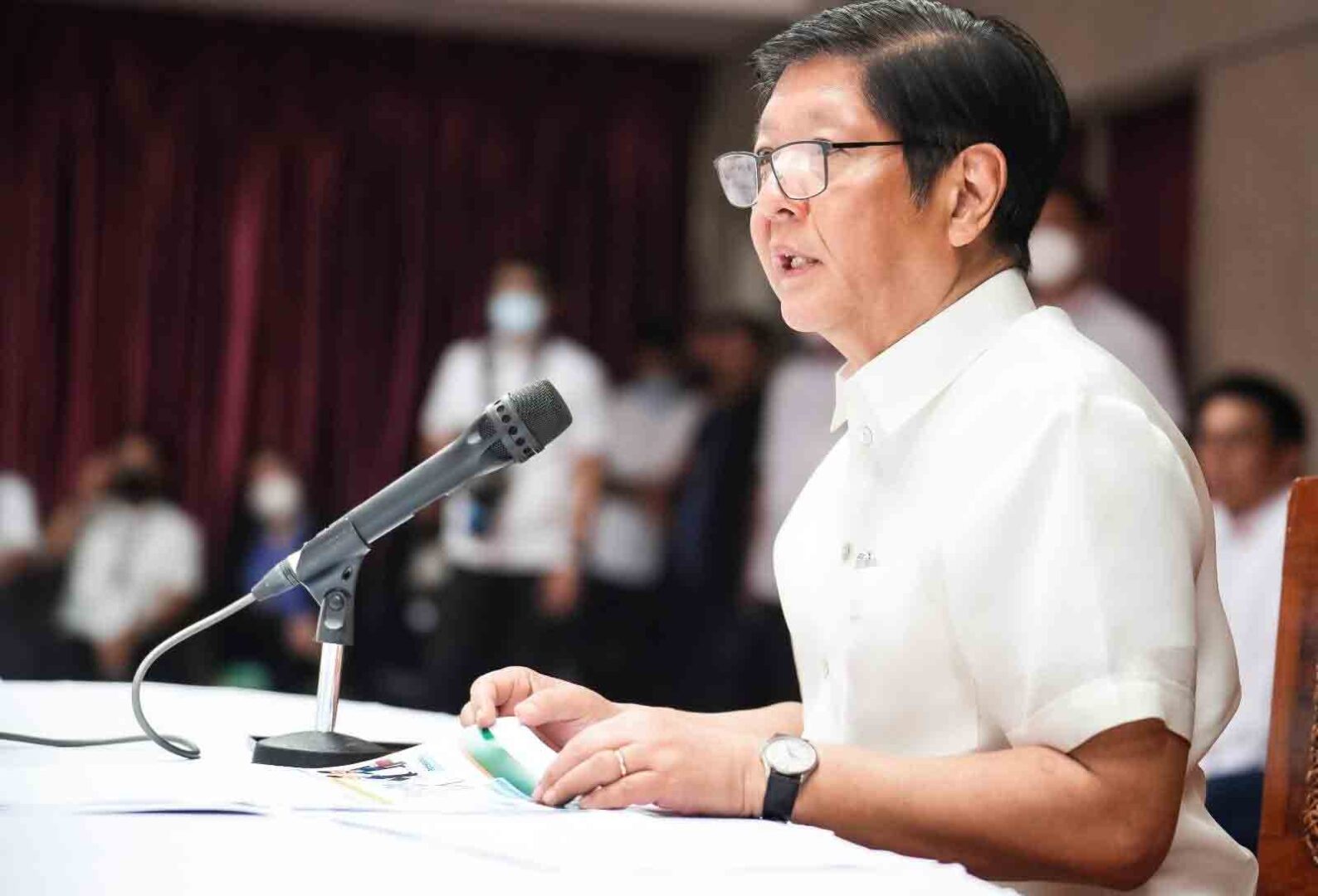President Ferdinand Marcos Jr. on Wednesday assured the public the national government will not use state pension funds Social Security System and Government Service Insurance System as “seed funds” to finance the proposed Maharlika Investment Fund.
The Chief Executive made the assurance in an interview with reporters at the 86th-anniversary celebration of GSIS, hours after the Senate passed Senate Bill 2020 creating the MIF.
The Senate approved the controversial sovereign fund bill, voting 19-1-1 at around 2:30 in the morning of Wednesday following 12 hours of deliberations.
Marcos explained, however, that the pension funds themselves could invest in the proposed sovereign wealth fund if they believe it is a “good investment.”
“We will not use it as a seed fund. However, if a pension fund decides the Maharlika Fund is a good investment, it’s up to them if they want to invest in it, not only pension funds but corporations,” Marcos said.
“Those funds, that’s all they do, they grow their money so they have something to give,” Marcos added.
Marcos said this is what GSIS has been doing. He said GSIS makes sure that “they are very solid (and) that they are very stable” so that they could give out all the payments (to its members).
“We have to differentiate those two things,” he added.
In a separate interview, GSIS president Jose Arnulfo “Wick” Veloso said they would abide by the lawmakers’ decision regarding the MIF.
“I don’t have any idea about what other discussions are happening about those things. We will only do one thing, whatever the decision of the lawmakers is because they listen to our people, whatever they want, that’s what we will follow,” Veloso told reporters.
“So we are just guided by the direction that is given to us,” he added.
Unanimous approval
During Tuesday’s plenary session which ran until early Wednesday, senators unanimously approved the fund measure shortly after it was approved on second reading.
A total of 19 senators voted in favor of the passage of the Maharlika bill, while only one senator voted against it and one abstained.
Senate Deputy Minority Leader Risa Hontiveros objected to the measure while Senator Nancy Binay abstained from voting. Senators Aquilino Pimentel III and Imee Marcos, who also opposed the measure, were not present.
During the period of individual amendments, senators introduced several changes to the proposed Maharlika Investment Fund, including a ban on government financial institutions such as the SSS, GSIS, Philippine Health Insurance Corporation, OWWA Fund, Philippine Veterans Affairs Pension Fund, Office Pension Fund, and other government social welfare entities investing in the sovereign wealth fund.
The amendment, which was introduced by Senator Raffy Tulfo, was accepted by Senator Mark Villar, the principal author, and sponsor of the measure.
With the approval of the measure in the Upper Chamber, the Maharlika bill is now closer to enrollment for the President’s signature.
Senate President Juan Miguel Zubiri designated Senators Villar, Pia Cayetano, Ronald “Bato” dela Rosa, Francis Tolentino and Senate Minority Leader Aquilino “Koko” Pimentel III as the Senate contingent to the bicameral conference committee.
Contingents from both the House of Representatives and Senate are to convene at 11 a.m. today to reconcile the disagreeing provisions in their respective versions of the Maharlika bill.
Economic team lauds Senate
Meanwhile, Marcos’ economic team lauded the Senate for passing the Maharlika Investment Fund.
“The economic team commends Senate President Miguel Zubiri and Senator Mark Villar for their thorough deliberation and prioritization of the proposed Maharlika Investment Fund Act,” Finance Secretary Benjamin Diokno said.
“The Senate leadership pulled out all the stops to ensure that the bill we bring to the President reflects the administration’s objective of creating a profitable and secure investment fund,” he added.
The bill’s speedy approval was backed by Diokno, Executive Secretary Lucas Bersamin, Budget Secretary Amenah Pangandaman, Socioeconomic Planning Secretary Arsenio Balisacan and Bangko Sentral ng Pilipinas Governor Felipe M. Medalla, who were all present during the prolonged Senate session.
Budget Secretary Pangandaman, for her part, said the Senate’s version of the MIF has “multiple” safeguards against potential misuse.
“This is a great stride towards our long-term progress and will boost our efforts for economic growth,” Pangandaman said.
“This includes multiple safeguards — we have an audit committee, there’s an advisory board, and there’s a congressional oversight committee. It adheres to the internationally known Santiago principles, there’s the (Commission on Audit), and it has (a) procurement law, so I think we have enough safeguards,” she added.
She highlighted potential financial resources from the Land Bank of the Philippines, the Development Bank of the Philippines, the Philippine Amusement and Gaming Corporation, central bank dividends, and income from privatization.
@tribunephl_tiz @tribunephl_jom
